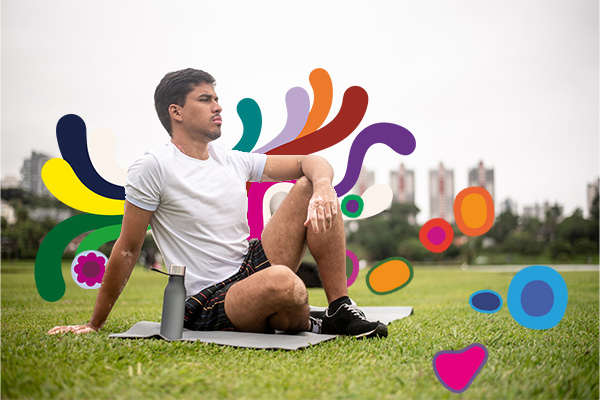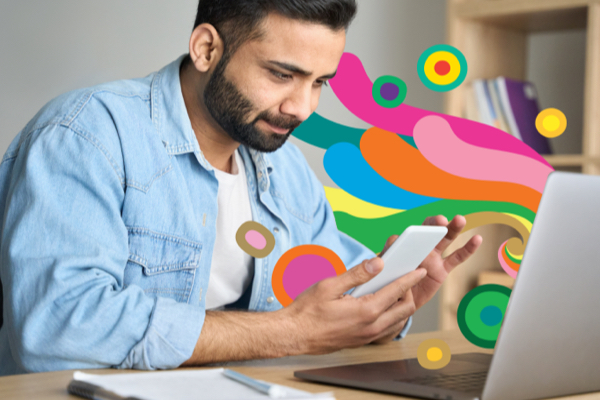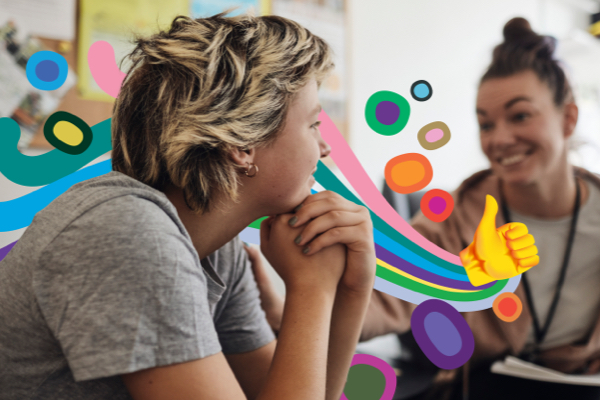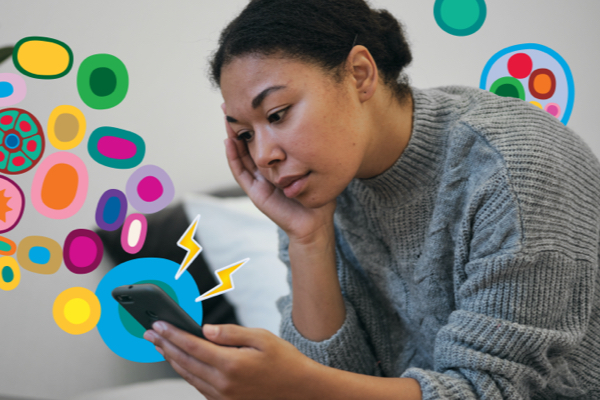How to deal with loneliness and feel more connected

According to research, Australians are reporting increasing feelings of loneliness. But what does being lonely or feeling lonely really mean?
Loneliness is a mismatch between what you expect your relationship to be, or how many relationships you want, and your actual relationships. If your needs and expectations aren’t being met, that’s when loneliness thrives.
Read more about what loneliness feels like, and when it becomes a problem.
Medibank’s We Are Lonely podcast series, now in its third season, addresses issues of loneliness among young adults from a range of backgrounds. Working with mentors, these young adults explore new strategies to find connection.
Why do we feel lonely?
Loneliness can occur for many reasons. It tends to be more prevalent during life transitions such as moving to a new city, changing jobs, becoming a parent or a relationship break-up.
There can also be a combination of factors at play, for example, having a mental health condition, such as depression or anxiety, or a physical condition that impacts your mobility or confidence.
Whatever your reason for feeling lonely – and sometimes you may not know why you do – it is a normal human emotion and does not mean there is something wrong with you. We all feel lonely sometimes, and it can impact our wellbeing.
It can be a challenging thing to overcome, but building your skills, knowledge and changing your mindset can help you to find connection and move through loneliness.
8 strategies to deal with loneliness
Throughout the We Are Lonely podcast, young adults share their personal stories about how they experience and deal with loneliness, and work with mentors to develop strategies to connect with others.
1. Practice self-compassion and kindness
There’s nothing wrong with feeling lonely, says counsellor and podcast mentor Tessa Blencowe. It’s a human response to a feeling of disconnect. Rather than judging yourself, instead ask, “What’s missing from my life?” Use loneliness as a compass for reconnection.
2. Know – and like – yourself
We need to connect to ourselves before we can create meaningful relationships with others. Very often we feel lonely when we feel disconnected from ourselves or feel unable to live authentically in the world.
Curtis was just 14 years old when he came out and says he sometimes struggled with being his true self at school. “When groups of guys get together often there's that sense of heightened masculinity that can happen, that kind of bravado… Sometimes I would feel lonely or on the outer, because that wasn't necessarily my true self, that wasn't authentically me,” Curtis says in season 3 of the podcast.
Understanding yourself, and learning to love yourself can be a long and complex journey, but Tessa Blencowe, a counsellor, author and mentor on the podcast, suggests writing a letter to your inner child.
“By engaging with ourselves in this way, we can notice the different parts at play, allowing us to have a different conversation with ourselves. We can better understand what’s troubling us, and what we need to move forward.”
3. Start small and build up
James van Cuylenburg, a clinical psychologist and season 3 mentor, suggests writing down a list of actions you could take to build connection with others, starting with something that feels easy. That might be reaching out to someone online who enjoys the same music, through to something that might be more uncomfortable, such as asking someone to meet for coffee over text or calling someone on the phone to invite them to the movies. By slowly working through the list, these actions can get steadily easier and less intimidating.
4. Find ways to sit with uncomfortable feelings
It’s human nature to try and avoid unpleasant or uncomfortable situations or feelings. It’s how we can stay feeling safe. But, by experiencing (and surviving) tricky situations, we can get better at trying new things. Think of some actions you might want to do on your own, but are slightly uncomfortable with. It might be going to a movie, sitting at the beach, or having a coffee at a café.
Try and do one of these and take note of how your feelings of discomfort change over time. Try and build up and put yourself more out of your comfort zone, perhaps asking a friend or colleague to join you, or going to a local community group for the first time. Think of your discomfort like a muscle that needs exercising. The more you do, the easier it will become.
“Sitting in those feelings in a constructive way, where I have something to show for it and feel like I’ve understood myself better, [leads to] feeling less lonely in a small way,” says Curtis.
5. Use your interests and passions as a starting point
Seeking new connections with people who share a passion or interest with you can help ease some of the anxiety that might come with joining a new group.
Will, 19, who lives with ADHD, anxiety and borderline personality disorder told the We Are Lonely podcast that he started to experience feelings of loneliness in school. “I always had friends, but I was a bit of a floater. There would be long periods where I just wouldn't get invited to anything.”
While he admits to struggling to create new connections, he says his love of music has created a way for him to meet people. “Music was always important to me. I'm into rap and that's where I see my people, the people that I can relate with [who] share similar stories to me.”
We Are Lonely podcast
We Are Lonely follows nine young Australians as they navigate loneliness and seek meaningful connections. Each episode provides an intimate look into their personal experiences with loneliness and the unique ways they strive to build relationships.

6. Find a common cause
Volunteering is one way to combat feelings of loneliness. Giving our time and resources to help others or the environment can create feelings of purpose, self-worth and self-esteem in us. To find volunteering opportunities near you, check out local community boards, or the database at Go Volunteer. Many local and national organisations like parkrun offer volunteering opportunities.
Supporting a good cause can also inspire feelings of connections with people locally and all around the world, says Ee Ling from season 3 of the We Are Lonely podcast. “Sometimes I attend marches to feel ‘hey, I'm not the only one who thinks that, we all believe in the same cause’. And that helps me feel more hopeful.”
7. Don’t give up
Not everything we do works out the way we hoped. Sadly, that’s true for making new friends too. It may take time to find people you genuinely connect with, and that’s ok, says Josie, a young musician from season 3 of the We Are Lonely podcast.
“I reached out to a Canadian musician on TikTok and she's my international pen pal now. That's a strategy that I've done so many times where it hasn't worked out. But I've kept doing it. Never underestimate the power of just reaching out until it works.”
8. Ask for help
If you’re feeling lonely because of a mental health condition, such as anxiety or depression, or your feelings of loneliness persist and are impacting your overall wellbeing, reaching out to a mental health professional can help.
If your life or someone else’s is in danger, call 000 immediately.
If you’re in distress and need help, call Lifeline on 13 11 14 for 24/7 crisis support.
For non-emergency support, your GP or regular health practitioner is often the best place to start. They will be able to assess your individual situation and recommend the best next steps for your recovery.
Remember that help is always available, no matter the situation.
How can we help?
I want to know how my cover supports mental health
I need help and want to talk
Related articles
Things you need to know
While we hope you find this information helpful, please note that it is general in nature. It is not health advice, and is not tailored to meet your individual health needs. You should always consult a trusted health professional before making decisions about your health care. While we have prepared the information carefully, we can’t guarantee that it is accurate, complete or up-to-date. And while we may mention goods or services provided by others, we aren’t specifically endorsing them and can’t accept responsibility for them. For these reasons we are unable to accept responsibility for any loss that may be sustained from acting on this information (subject to applicable consumer guarantees).


